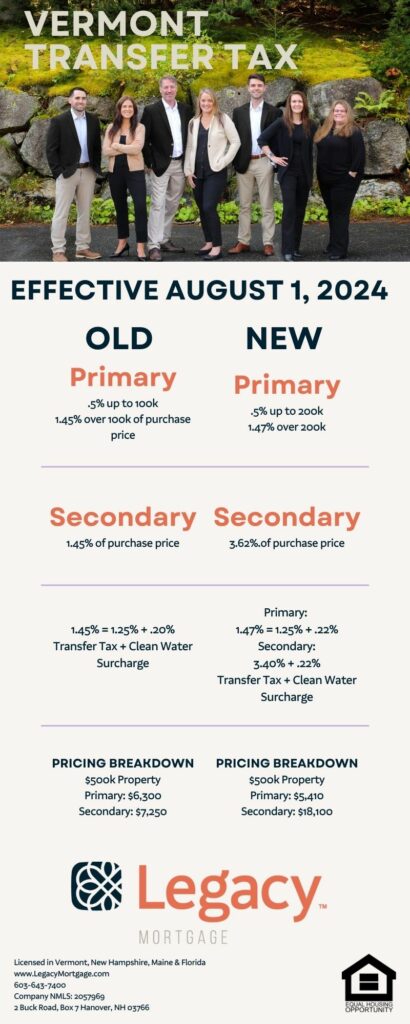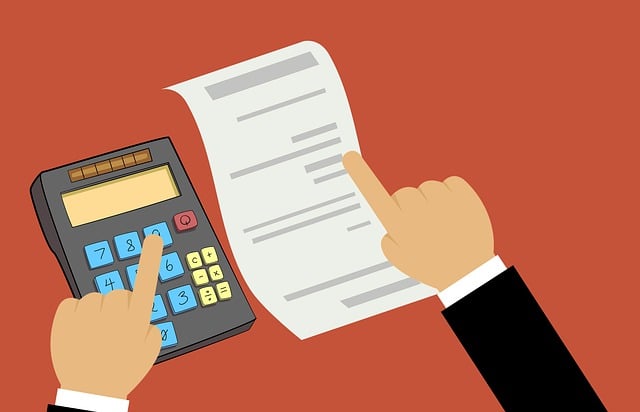 The state of Vermont has made changes to the transfer taxes paid for a real estate sale. The transfer tax change will result in significantly higher tax for those buying a second home however someone buying a primary residence will see a decrease in the transfer tax due at closing.
The state of Vermont has made changes to the transfer taxes paid for a real estate sale. The transfer tax change will result in significantly higher tax for those buying a second home however someone buying a primary residence will see a decrease in the transfer tax due at closing.
What is a Real Estate Transfer Tax
When you are buying a home your closing costs will include a tax called transfer tax. The transfer tax is charged by the state (and in some states additional county and town taxes may apply.)
Transfer tax will vary by location, in some states the transfer tax is divided between the buyer and the seller however in Vermont the buyer is entirely responsible for covering the transfer taxes.
Vermont Transfer Tax Changes
Effective on August 1, 2024 the Vermont transfer tax on a second home will increase from 1.25% to 3.4% and when you add in the clean water surcharge it takes the total transfer tax on a second home to 3.62%.
When looking at a second home with the purchase price of $500,000 the transfer tax prior to August 1st would have been $7,250 and after August 1st the transfer tax due will now be $18,100. This results in a significant change in taxes due at the closing table of the second home purchase.
In contrast, the transfer tax on a personal residence will now be .5% of the value up to $200,000 which has increased from $100,000. Beyond the value of $200,000 a 1.47% transfer tax will apply.
This new formula will actually save money for those who intend to make the Vermont home their primary residence. Under the old transfer tax formula on a $500,000 home the transfer tax would have been $6,300 but with the new calculations the buyer would owe $5,410.
Long Term Rental Transfer Tax Exemption
If you are buying a property in Vermont that will be used as a long term rental it would not be subject to the new second home transfer tax. A long term rental would be subject to a 1.47% transfer tax including the clean water surcharge. To qualify, the buyer would need to annually file a landlord certificate. A long term rental is defined as a rental period of 30 days or more.
Additionally, a property that is not fit for year round habitation such as a seasonal camp would also be subject to the standard 1.47% transfer tax.
Understanding Your Transfer Tax
If you are purchasing a home in Vermont you will want to talk to your local lender about how the transfer taxes due will impact what you owe at closing. If you intend to use the property as a rental investment vs. a second home there would be drastically different transfer taxes due at closing. Discuss your intended use for the property with your loan originator and the Legacy Mortgage team will work diligently to find the best loan program for your scenario and help you navigate the options available impacting how much the transfer tax will be.
The Legacy Mortgage team collectively boasts over a 135 years of industry experience and is well versed in a variety of loan programs including fixed mortgages, ARMs, VA loans, FHA, first time homebuyer and more! We have the privilege of partnering with the best local agents, appraisers and attorneys the Upper Valley has to offer. When you work with Legacy Mortgage you are working with the best local professionals from beginning to end. Reach out to the Legacy Mortgage team to get the loan process started. Call us today, 603-643-7400.

